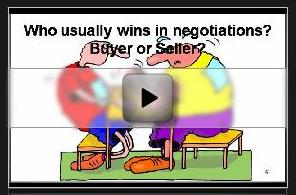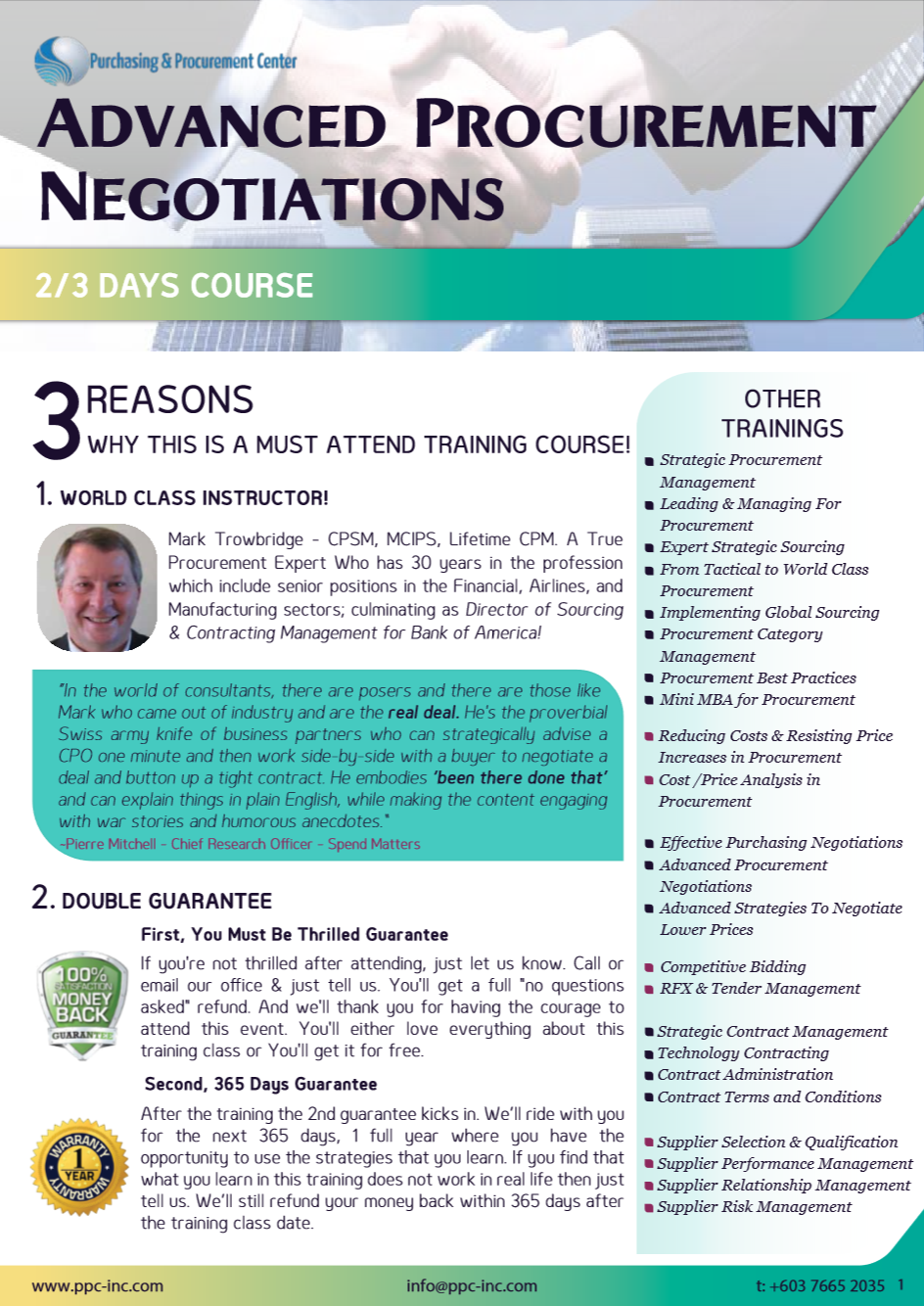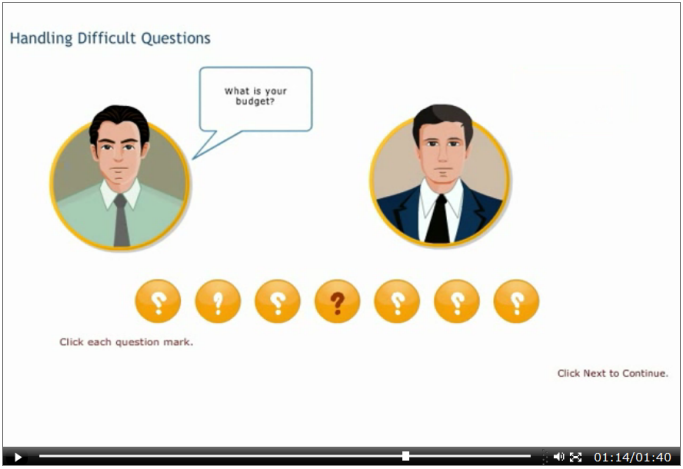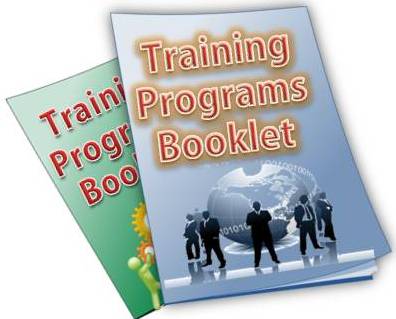6 Steps to a Price Negotiation Letter:
2 Non Effective Examples
& 1 Example of an Effective Letter
Probably you're scratching your head of how to write a price negotiation letter, since you’ve been hit by a price quote from your supplier that is higher than your budget.
In this article you will find 2 actual examples of how NOT to write a negotiation letter, followed by an example of how the letter should be written. Finally we dissect the letter to 6 steps that you can use in the future for all your price negotiations.
Are you in rush? Then download the free Out-Negotiating Suppliers Free Report/White Paper here which includes the example shown in this article plus shows effective strategies that you can use to negotiate with suppliers & get a better price without being a pain in their back!
Example 1: How NOT to Write a Price Negotiation Letter
Here's an actual email (for all purpose an email is a letter nowadays), which we received from one of our clients, asking for a better price than we quoted. (Of course names have been changed to protect the confidentiality)
Good day Janet,
Thank you for your proposal. Our company reviews your bid and found high. Therefore, you are requested to submit a revised bid.
We also have reviewed your comments and result with the followings:
The payment will be in accordance with the Contract Terms & Conditions as stated in Paragraph 2 of Schedule B.
Moreover, please be advised if you have any inquiry or question, send it by e-mail no later than October 21.
Regards,
James Belushi
As you may imagine the reply to this price negotiation letter (email) was something along the line that the price quoted was the best price. After that a second price negotiation letter (email) followed, as below:
Example 2: How NOT to Write a Price Negotiation Letter
Good day Janet,
Please be advised that our offer is $175,500 (your bid – 10%).
Kindly be advised that we need your reply by Monday October 25.
Best regards,
Morgan Freeman
Contract Specialist
Contracts Unit
Again this email received a similar reply to the previous one, with the end result that the supplier got the contract at the quoted price.
Example 3: of How to Write an Effective Price Negotiation Letter
Let’s write now a price negotiation letter that is more effective for price negotiations.
Dear Janet,
Thank you for your proposal. We sincerely appreciate the effort that you have put in submitting such a comprehensive proposal for our company.
We do understand that you would have spend considerable time and resources to come up with this proposal which outlines in details how you are going to provide what we need.
I and my team reviewed the whole proposal in detail, and overall we are happy with it. At the same time there’s one fundamental issue which will probably stop us from giving this contract to you.
Let me explain:
Our Vice President has given us a specific budget for this contract. He also has instructed our contracts team to get another 3 quotes from other suppliers, with a view to have a competitive pricing quoted.
On my side I managed to convince him that we should hold on from getting quotes from other suppliers, since in the past you have done a very good job. I promised him that we are going to get this contract within the budget that he gave. He agreed to this, but if we cannot get your proposed price within our budget, then we would have to open this to another 3 suppliers.
Again I personally would love to have you as our supplier. But to do this we would need your price to better than what you have quoted in your initial proposal. Your price should be 9% lower at a final price of USD 177,500.
If you cannot offer this price, I’m afraid that we would have to look at getting other suppliers for this job.
Again I hope and trust to get your acceptance of this offer from our side. I trust you understand that in the past we have been loyal clients to you and I am sure that in the future your flexibility in your offer should result in future work for you and your organization.
Looking forward to hearing from you by 27 October.
Best Regards
Morgan Freeman
Contract Specialist
Contracts Unit
6 Steps to Follow When Writing a Price Negotiation Letter
Let’s quickly dissect the letter written above, so that you have a template for writing future letters.
- Have a positive, polite & professional tone throughout the letter. The whole letter is positive and professional. If the vendor cannot accommodate the discount asked by the client, then the client nicely outlines the possible course of action he needs to take.
- Praise the Vendor The first 3 paragraphs of this letter do exactly that, by praising the vendor for the comprehensive proposal.
- Explain your Position This is highlighted in the second part of the letter above where we outline the Vice President’s budget cap, how the Contracts Specialist would like to work with the supplier etc. Here usually some suppliers would make up many stories. However it’s best to simply tell the truth and leave the ‘tales’ out of such letters.
- Ask for an Odd Number Discount When you ask for a discount always go on the odd numbers, 3, 6, 7, 9 % and so on. Never ask for 5/10/15 % and so on. When you ask for an odd number it shows that you have carefully evaluated the proposal of the supplier and considered your budget. If your industry operates on low margins it would be fine to go on 2.5%, 3.5% and so on.
- Let the supplier Know what would happen if he will not negotiate on price. In our case we mentioned that we would have to open this to another 3 suppliers.
- State past business given to the supplier & possible future business. Be careful that when you indicate the prospect for future business you are non-committal as you do not know whether you will be able to give future business or not. Whenever in doubt, simply refer to past business as a possible trend for future business.
Or, find out more info about Purchasing & Procurement Management & Strategies.




